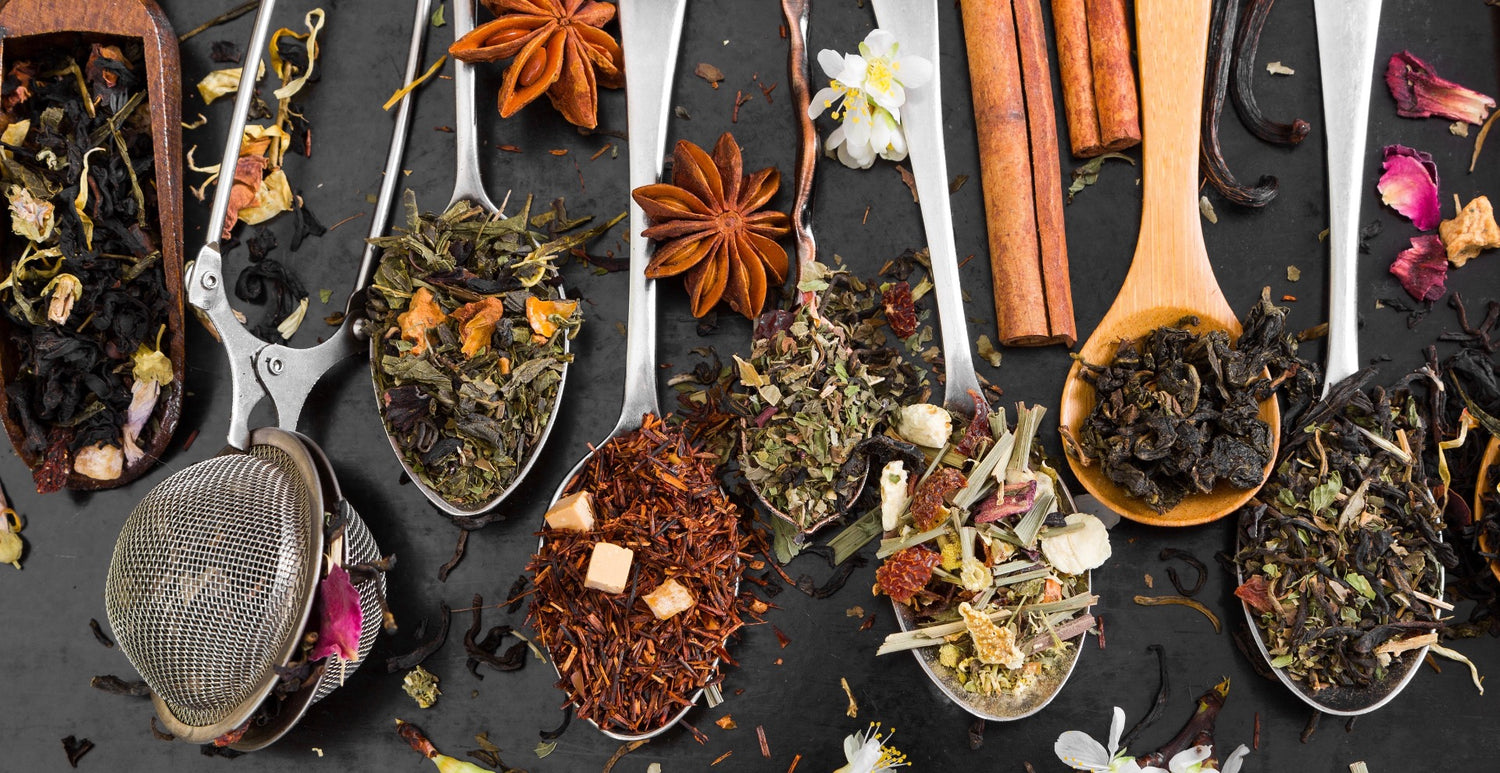
You have probably known all along that tea is good for you. But you may be surprised to learn that there is a growing body of scientific evidence to support your feelings. While these findings are simply correlations and are not yet considered scientific fact, they do provide a wealth of information to support the healthy aspects of tea.
- Numerous studies have been published demonstrating the positive impact tea has on health. The following link summarizes key findings from multiple studies, including positive impacts on Coronary Heart Disease, Cancer, Kidney Stones, and Osteoporosis.
An Overview of Research on the Potential Health Benefits of Tea - Specialty Tea Institute
Read the entire article online.
- Scientists have confirmed that the healthful substances found in green tea — renowned for their powerful antioxidant and disease-fighting properties — do penetrate into tissues of the eye. Their new report, the first documenting how the lens, retina, and other eye tissues absorb these substances, raises the possibility that green tea may protect against glaucoma and other eye diseases.
New Evidence That Green Tea May Help Fight Glaucoma and Other Eye Diseases - Science Daily, February 20, 2010
Read the entire article online.
- Findings of a recent study into the effects of green tea on prostate cancer found that certain compounds have an influence on the progression of the disease. The studied substance, polyphenon, was found to significantly reduce the serum markers predictive of prostate cancer progression. In collaboration with Columbia University in New York City, the researchers are currently conducting a comparable trial among patients with breast cancer.
Green Tea May Slow Prostate Cancer Progression - June 22, 2009
Read the entire article online.
- According to a study published in Journal of Food Science, black tea has the potential of managing the development of diabetes. Chinese scientists, examining the polysaccharide levels of different tea varieties, found that polysaccharides in black tea had the most glucose-inhibiting properties. Polysaccharides are a type of carbohydrate that may benefit people with diabetes because they help retard absorption of glucose. Black tea polysaccharides are also shown to have the highest scavenging effect on free radicals, which are involved in the onset of diseases such as cancer and rheumatoid arthritis.
Black Tea May Fight Diabetes - August 13, 2009
Read the entire article online.
- A recent Finnish study found that men who drank more than two cups of tea a day had a 21% reduced chance of stroke, and consumption of at least three cups of tea a day can lower the risk of a heart attack by up to 70%.
Three cups of tea a day 'can cut heart attack risk by 70% - May 22, 2009
Read the entire article online.
- Scientists found that tea-making can reduce stress levels by up to a quarter. The findings reveal that even a single cup of tea can significantly reduce anxiety levels after suffering a stressful experience. Moreover, psychologists discovered that the act of putting the kettle on also helped by tapping into a collective conscious and symbolism. The study showed a 25% increase in anxiety for those that did not receive tea immediately after the stress-inducing test, whereas those who were given tea actually demonstrated a four per cent reduction in stress.
A cup of tea really can help reduce stress at times of crisis, claim scientists - August 13, 2009
Read the entire article online.
- According to Wikipedia, the potential effects of tea on health have been touted for infusions made from the plant Camellia sinensis for more than 4700 years. A wide range of potential benefits include: Anti-cancer properties, increases in metabolic rates, possible anti-diabetes effects, boosts in mental alertness, boosts in immune system functions, decreases in chances of cognitive impairment, lowering of stress hormone levels, complementary effects on the inhibition of HIV virus binding, effects on inflammatory bowel disease (IBD), positive effects on bacterial and fungal infections, and much more.
Potential Effects of Tea on Health
Learn more at Wikipedia.
- A report in Bloomberg Magazine says that drinking tea may improve alertness. “Tea may improve the ability to concentrate because of a substance found almost exclusively in several types of the beverage, according to research presented at a conference highlighting ties between tea and good health. Theanine, an amino acid present in black, green and oolong teas, actively alters the attention networks of the brain to improve both calmness and alertness, according to John Foxe, a neuroscience professor at City College of the City University of New York.”
Drinking Tea May Improve Alertness, Scientist Says, September 18, 2007
Read the entire article online.
- An article in USA Today reported on the health benefits of tea, particularly green tea. “The most fascinating thing is, to my knowledge, there is no other natural product known that has such diversified effects,” says Hasan Mukhtar, vice chair of dermatology at the University of Wisconsin - Madison. Mukhtar and other tea researchers point to tea’s 5,000-year track record of safety and say at the very least, drinking tea can’t hurt, and, most likely, it can help.
Put the Kettle On: It’s Good for You - Evidence Pours In that Tea Is Stepped in Health Benefits, October 8, 2007
Download and read a reprint in Microsoft Word format.
- A study shows that adults who consumed three or more cups of green tea per day had a lower risk of death due to cardiovascular disease. The study, conducted by the Tohoku University School of Public Policy in Japan, followed 40,530 Japanese adults, ages 40 to 79 years, with no history of stroke, coronary heart disease or cancer at baseline beginning in 1994. The study followed all participants for up to 11 years for death from all causes and for up to 7 years for death from a specific cause. Participants who consumed 5 or more cups of tea per day had a 16 percent lower risk of all-cause mortality and a 26 percent lower risk of cardiovascular disease than participants who consumed less than 1 cup of tea per day. The study also states, “If green tea does protect humans against CVD or cancer, it is expected that consumption of this beverage would substantially contribute to the prolonging of life expectancy, given that CVD and cancer are the two leading causes of death worldwide.”
The Ohsaki Study, Journal of the American Medical Association, September 13, 2006
Read an abstract online.
- A study suggests that drinking just one cup a day of green or black tea may lower the risk of epithelial ovarian cancer in women by 24 percent. By drinking at least two cups, the risk appears to drop by 48 percent. These conclusions were drawn as a result of a 15-year survey conducted by researchers at the Swedish Mammography Cohort of the tea-drinking habits of over 61,000 women between the ages of 41 and 76.
Susanna C. Larsson, MSc; Alicja Wolk, DMSc, Archives of Internal Medicine, December 26, 2005
Read an abstract online.
- According to a online report published by the Science and Development Network in June 2005, a study at the Vivekanada Institute of Medical Sciences in Kolkata, India suggests that drinking black tea could help prevent oral cancer.
Read the complete article online.
- A report in the March 2005 issue of Specialty Coffee Retailer Magazine, “A Healthy Take on Tea”, includes comments from Elliot Johnson, President of the Mark T. Wendell Tea Company.
Read the complete article online.




